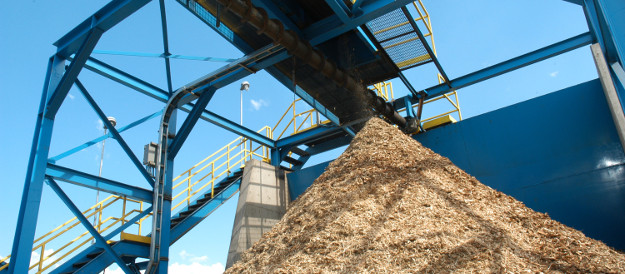
UBC, Canadian aviation industry to collaborate on making biofuel from forest-industry waste
By Design Engineering staff
General Aerospace Energy Air Canada Boeing Bombardier university of British Columbia WestJetUniversity of British Columbia study estimates sustainable aviation biofuel could reduce CO2 emissions by 1 million tons per year.
 A consortium of Canadian aerospace companies and university researchers have announced a pilot project to turn leftover branches, sawdust and other forest-industry waste into sustainable aviation biofuel. Initially announced in June, during the 2015 Canadian Bioeconomy Conference in Vancouver, the project was recently awarded funding by the Green Aviation Research and Development Network (GARDN) of Canada as part of its efforts to reduce aviation’s carbon emissions.
A consortium of Canadian aerospace companies and university researchers have announced a pilot project to turn leftover branches, sawdust and other forest-industry waste into sustainable aviation biofuel. Initially announced in June, during the 2015 Canadian Bioeconomy Conference in Vancouver, the project was recently awarded funding by the Green Aviation Research and Development Network (GARDN) of Canada as part of its efforts to reduce aviation’s carbon emissions.
The project stems from the findings of a 2015 Boeing-sponsored study, conducted by the University of British Columbia, that showed aviation biofuel made from forest waste could meet 10 percent – about 46 million gallons – of BC’s annual jet fuel demand. These efforts could also supply biofuel to ground and marine vehicles, saving about 1 million tons of CO2 emissions per year on a life cycle basis across the transportation sector, the study found. According to the U.S. Department of Energy, using sustainable biofuel reduces lifecycle carbon dioxide emissions by 50 to 80 percent compared to conventional petroleum fuel.
The consortium, led by UBC and Vancouver-based NORAM Engineering and Constructors, Ltd., includes Boeing, Air Canada, WestJet, and Bombardier as well as SkyNRG, a Netherlands-based supplier of sustainable jet fuel that has supplied biofuel to more than 20 carriers worldwide.
“Sustainable aviation biofuel will play a critical role in reducing aviation’s carbon emissions over the long term,” said Julie Felgar, managing director of Environmental Strategy & Integration, Boeing Commercial Airplanes. “Canada is in a terrific position to leverage its sustainable forests to make environmental progress for its aviation industry and other transport sectors.”
www.gardn.org
